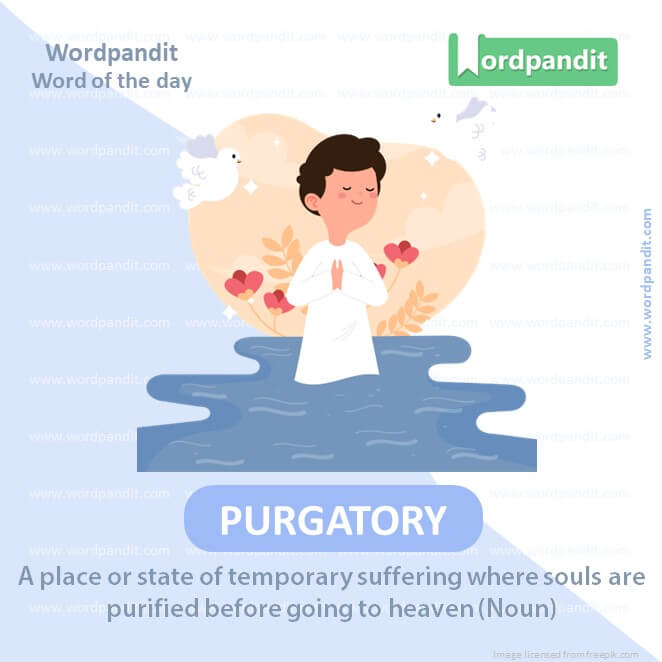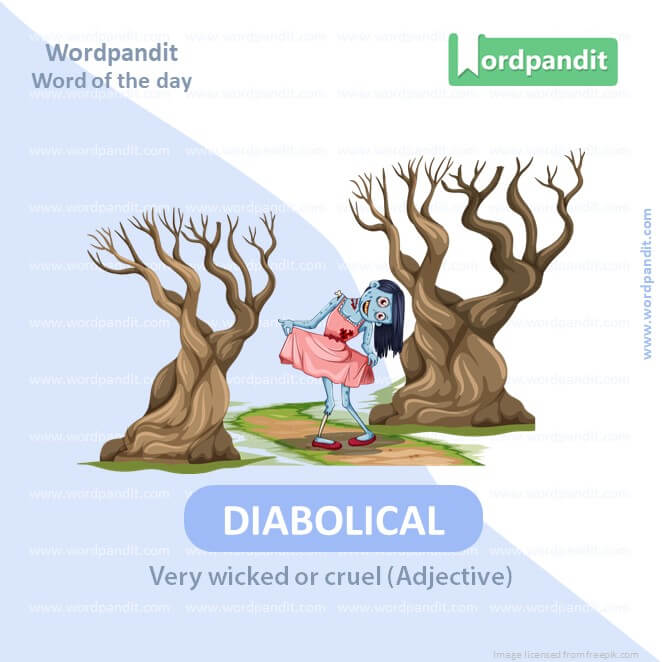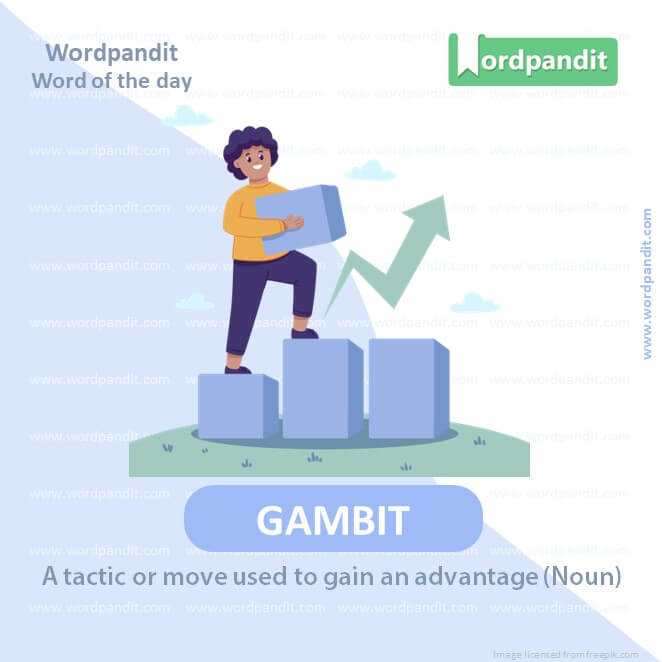Daily Vocabulary from Leading International Newspapers: September 7, 2023
Daily Vocabulary Words: List of Daily Used Words in Leading International Newspapers
Hi there. Welcome to this special section @ Wordpandit.
Our endeavour here is very simple: to highlight important daily vocabulary words, which you would come across in leading newspapers in the country. We have included the following newspapers in our selection:
• The New York Times
• The Washington Post
• Scientific American
• BBC
• The Guardian
• Psychology Today
• Wall Street Journal
• The Economist
We are putting in extensive work for developing your vocabulary. All you have got to do is be regular with this section and check out this post on a daily basis. This is your repository of words that are commonly used and essentially, we are posting a list of daily used words. Hence, this has significant practical application as it teaches you words that are used commonly in leading publications mentioned above.
Visit the website daily to learn words from leading international newspapers.

WORD-1: PURGATORY
CONTEXT: Every once in a while, Sarah Palin tries to escape the purgatory of irrelevancy by doing or saying something that the failed Congressional candidate is likely convinced will inject her back, however briefly, into the cultural zeitgeist.
SOURCE: Al Jazeera
EXPLANATORY PARAGRAPH: Imagine being in a waiting room, not sure if you’ll be called into a happy place or a not-so-happy place. “Purgatory” is like that waiting room. Some people believe it’s a place where souls go to be cleaned before they can enter heaven.
MEANING: A place or state of temporary suffering where souls are purified before going to heaven (Noun).
PRONUNCIATION: PUR-guh-toh-ree
SYNONYMS: Limbo, Intermediate state, Holding area, Middle ground, Halfway house, Twilight zone, Interim
USAGE EXAMPLE:
1. Many believe that souls in purgatory are awaiting judgment.
2. The waiting room felt like a purgatory to anxious patients.
3. She described her time in the village as a purgatory of boredom.
4. The legend speaks of a purgatory for wayward spirits.

WORD-2: ZEITGEIST
CONTEXT: Every once in a while, Sarah Palin tries to escape the purgatory of irrelevancy by doing or saying something that the failed Congressional candidate is likely convinced will inject her back, however briefly, into the cultural zeitgeist.
SOURCE: Al Jazeera
EXPLANATORY PARAGRAPH: Imagine the mood or spirit of a time when everyone is doing or feeling something similar. Like when everyone starts playing the same game or wearing the same kind of clothes. “Zeitgeist” is a fancy word for the spirit or mood of a particular time.
MEANING: The general mood, ideas, or beliefs of a particular time period (Noun).
PRONUNCIATION: ZITE-guyst
SYNONYMS: Spirit of the age, Mood, Atmosphere, Trend, Climate, Tone, Vibe
USAGE EXAMPLE:
1. The film captures the zeitgeist of the 1960s.
2. Social media has become part of the zeitgeist of this century.
3. The novel reflects the zeitgeist of post-war America.
4. Art often mirrors the zeitgeist of its era.
WORD-3: GALLING
CONTEXT: It must be galling for the former Republican “it girl”– who was plucked from obscurity and thrust into the ego-swelling limelight as John McCain’s running mate in 2008 – to watch from afar as the diabolical duo of Marjorie Taylor Greene and Lauren Boebert slowly and inevitably overtook her in the calcified hearts and conspiracy-consumed minds of the party’s looney tunes faithful.
SOURCE: Al Jazeera
EXPLANATORY PARAGRAPH: Imagine something that really annoys you, like when your toy is taken away. “Galling” is a word that describes that super annoying feeling.
MEANING: Very annoying or irritating (Adjective).
PRONUNCIATION: GAL-ing
SYNONYMS: Irritating, Annoying, Vexing, Infuriating, Aggravating, Maddening, Frustrating
USAGE EXAMPLE:
1. It was galling to see him succeed so easily.
2. The delay was a galling inconvenience.
3. She found his arrogance quite galling.
4. It’s galling that I have to work late again.
WORD-4: OBSCURITY
CONTEXT: It must be galling for the former Republican “it girl”– who was plucked from obscurity and thrust into the ego-swelling limelight as John McCain’s running mate in 2008 – to watch from afar as the diabolical duo of Marjorie Taylor Greene and Lauren Boebert slowly and inevitably overtook her in the calcified hearts and conspiracy-consumed minds of the party’s looney tunes faithful.
SOURCE: Al Jazeera
EXPLANATORY PARAGRAPH: Imagine a hidden treasure that no one knows about. “Obscurity” is like that hidden treasure; it’s about being unknown or hard to see or understand.
MEANING: The state of being unknown or not clear (Noun).
PRONUNCIATION: ob-SKYOOR-ih-tee
SYNONYMS: Uncertainty, Ambiguity, Darkness, Vagueness, Ambiguousness, Unclearness, Indistinctness
USAGE EXAMPLE:
1. The poet spent many years in obscurity before gaining fame.
2. The reason for his decision remains shrouded in obscurity.
3. She rose from obscurity to stardom.
4. The old manuscript was saved from obscurity by a historian.

WORD-5: DIABOLICAL
CONTEXT: It must be galling for the former Republican “it girl”– who was plucked from obscurity and thrust into the ego-swelling limelight as John McCain’s running mate in 2008 – to watch from afar as the diabolical duo of Marjorie Taylor Greene and Lauren Boebert slowly and inevitably overtook her in the calcified hearts and conspiracy-consumed minds of the party’s looney tunes faithful.
SOURCE: Al Jazeera
EXPLANATORY PARAGRAPH: Imagine a cartoon where the villain laughs evilly and plots wicked plans. “Diabolical” is a word that describes something really evil or wicked, just like that villain.
MEANING: Very wicked or cruel (Adjective).
PRONUNCIATION: dye-uh-BOL-ih-kul
SYNONYMS: Evil, Demonic, Devilish, Fiendish, Infernal, Sinister, Satanic
USAGE EXAMPLE:
1. He hatched a diabolical plan to take over the city.
2. The villain’s diabolical laughter echoed in the chamber.
3. The movie’s antagonist had a diabolical nature.
4. The experiment had diabolical consequences.
You’ve done a great job with formatting! Here are the details for the words you provided:
WORD-6: CONTRIVED
CONTEXT: Despite her diminished profile, Palin has been busy reconfirming those credentials. She told Bolling a few days earlier in the same contrived setting that Donald Trump’s arraignment in Georgia – on a slew of felony charges in connection with a mob-type scheme to overturn his 2020 election loss in the state – was going to provoke a “civil war”.
SOURCE: Al Jazeera
EXPLANATORY PARAGRAPH: Imagine making something using whatever things you have around, but it doesn’t seem natural or real. “Contrived” describes something that seems fake or forced.
MEANING: Deliberately created rather than arising naturally (Adjective).
PRONUNCIATION: kun-TRYVED
SYNONYMS: Artificial, Forced, Fake, Faked, Feigned, Pretend, Unnatural
USAGE EXAMPLES:
1. The movie had a contrived ending.
2. Her apology felt contrived and insincere.
3. The dialogue in the play seemed contrived.
4. They made a contrived attempt to look happy.
WORD-7: TRAVESTY
CONTEXT: “Those who are conducting this travesty and creating this two-tier system of justice, I want to ask them: What the heck. Do you want us to be in a civil war? Because that’s what’s going to happen. We’re not going to keep putting up with this,” Palin said. “We need to get angry. We do need to rise up and take our country back.”
SOURCE: Al Jazeera
EXPLANATORY PARAGRAPH: Imagine a funny play where everything is silly and not at all like the real story. “Travesty” means a bad or silly imitation of something.
MEANING: A bad or distorted imitation of something (Noun).
PRONUNCIATION: TRAV-uh-stee
SYNONYMS: Parody, Mockery, Caricature, Burlesque, Spoof, Lampoon, Charade
USAGE EXAMPLES:
1. The trial was a travesty of justice.
2. His performance was a travesty of the character.
3. The low-budget film was a travesty of the original.
4. What they did to that song is a travesty!

WORD-8: BROMIDES
CONTEXT: Palin’s rather lame rallying cry was chock-a-block with the predictable bromides meant to “fire up” – she forgot that one – Bolling’s tiny pool of perpetually seething, star burst-gravitating viewers. It was Palin’s explicit suggestion – framed, conveniently, as a consequence-free “question” – that a “civil war” was in the offing that caused, in her self-absorbed gambit, an agreeable stir.
SOURCE: Al Jazeera
EXPLANATORY PARAGRAPH: Think of those sayings that people use a lot, like “better late than never,” which don’t really help or make you feel better. “Bromides” are those common sayings or things that are meant to make you feel better but are kind of boring.
MEANING: Commonplace remarks or actions intended to soothe or calm (Noun).
PRONUNCIATION: BROH-mides
SYNONYMS: Clichés, Platitudes, Truisms, Commonplaces, Banalities, Trite sayings, Old chestnuts
USAGE EXAMPLES:
1. She offered the usual bromides about working hard and being patient.
2. His speech was filled with familiar bromides.
3. Instead of solutions, the mayor gave the public bromides.
4. I’m tired of hearing the same old bromides from politicians.
WORD-9: SEETHING
CONTEXT: Palin’s rather lame rallying cry was chock-a-block with the predictable bromides meant to “fire up” – she forgot that one – Bolling’s tiny pool of perpetually seething, star burst-gravitating viewers. It was Palin’s explicit suggestion – framed, conveniently, as a consequence-free “question” – that a “civil war” was in the offing that caused, in her self-absorbed gambit, an agreeable stir.
SOURCE: Al Jazeera
EXPLANATORY PARAGRAPH: Imagine a pot of water boiling with bubbles going crazy. If someone is “seething,” it’s like they have those bubbles of anger or strong feelings inside them.
MEANING: Filled with intense but unexpressed anger (Adjective).
PRONUNCIATION: SEETH-ing
SYNONYMS: Boiling, Furious, Fuming, Burning, Raging, Simmering, Steaming
USAGE EXAMPLES:
1. She was seething with anger after the argument.
2. Beneath his calm exterior, he was seething.
3. The crowd was seething with excitement.
4. She gave him a seething look and walked away.

WORD-10: GAMBIT
CONTEXT: Palin’s rather lame rallying cry was chock-a-block with the predictable bromides meant to “fire up” – she forgot that one – Bolling’s tiny pool of perpetually seething, star burst-gravitating viewers. It was Palin’s explicit suggestion – framed, conveniently, as a consequence-free “question” – that a “civil war” was in the offing that caused, in her self-absorbed gambit, an agreeable stir.
SOURCE: Al Jazeera
EXPLANATORY PARAGRAPH: In games, sometimes players make a move at the beginning to get an advantage. “Gambit” is like that move; it’s something someone does or says at the start to gain an advantage.
MEANING: A tactic or move used to gain an advantage (Noun).
PRONUNCIATION: GAM-bit
SYNONYMS: Ploy, Stratagem, Tactic, Move, Maneuver, Trick, Scheme
USAGE EXAMPLES:
1. Opening the negotiation with a high price was a clever gambit.
2. Her recent policy announcement is seen as a political gambit to attract younger voters.
3. He decided to use the famous King’s Gambit opening in the chess match.
4. She tried a new gambit to get the committee’s approval.
Vocabulary Daily
The path to language mastery is paved with dedication and daily practice. One such crucial practice is ‘vocabulary daily’—simply put, learning and practicing new words every day. Incorporating ‘vocabulary daily’ not only boosts linguistic aptitude but also aids in effective and versatile conversations and writings.
The first milestone in embracing ‘vocabulary daily’ is to set achievable and specific targets. Choosing a manageable number of new words – say three to five words – to learn every day makes the process more structured and less overwhelming.
To ensure ‘vocabulary daily’ learning is meaningful and effective, try to use the new words in real-life contexts. By writing them in sentences or using them in conversations, you can experience the practical application of the words, enabling you to remember them easily.
Utilizing technology such as language apps or websites can greatly support your ‘vocabulary daily’. These platforms often have word-of-the-day features that present new words daily with definitions, pronunciation, synonyms, and examples, keeping the daily learning interesting and varied.
Consistent reading and listening activities are also fundamental for ‘vocabulary daily’. Diversifying your reading materials and listening to different types of spoken content expose you to new words, increasing the chances of reinforcing the learned vocabulary.
While following a ‘vocabulary daily’, regular revisions are essential. Revisiting the words learned earlier helps to reinforce them in your memory, making the transition from ‘new vocabulary’ to ‘familiar vocabulary’ smoother.
In essence, introducing ‘vocabulary daily’ into your language learning routine is a strategic and effective approach to improving vocabulary. With achievable targets, regular usage of new words, the aid of technology, and consistent practice, ‘vocabulary daily’ eventually becomes a habit that paves the way to language proficiency.











